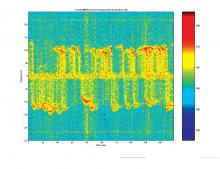The latest roadside cabinet developed by Ritherdon is said by the company to be the world’s first passive roadside cabinet. To ensure that the product performed as specified in EN 12767, two full-scale crash-tests were carried out on the product.
The tests examine two parameters to define the safety level of the vehicle occupants at the time of impact: acceleration severity index (ASI) and theoretical head impact velocity (THIV). The car was crashed into the passively safe cabinet at 35km/h and 100 km
The latest roadside cabinet developed by 7715 Ritherdon is said by the company to be the world’s first passive roadside cabinet. To ensure that the product performed as specified in EN 12767, two full-scale crash-tests were carried out on the product.
The tests examine two parameters to define the safety level of the vehicle occupants at the time of impact: acceleration severity index (ASI) and theoretical head impact velocity (THIV). The car was crashed into the passively safe cabinet at 35km/h and 100 km/h to check it behaved as expected at low and high speeds. In both cases, the cabinet detached as expected from its ground fixings when impacted. Ritherdon Poleplug connectors ensured full electrical and data cable disconnection was also achieved upon impact.
Although the vehicles were damaged following each test, they remained upright with no significant deviation from their original approach path. The steering mechanism of the vehicles remained fully functional and there was no damage to the windscreens. Most importantly, there was no damage to, or penetration of, the vehicle passenger compartments.
The cabinet’s performance during these tests demonstrated that it met EN 12767 standard, which defines passive safety levels intended to reduce the severity of injury to occupants inside a vehicle in the event of an impact with a permanent road side structure.
The tests examine two parameters to define the safety level of the vehicle occupants at the time of impact: acceleration severity index (ASI) and theoretical head impact velocity (THIV). The car was crashed into the passively safe cabinet at 35km/h and 100 km/h to check it behaved as expected at low and high speeds. In both cases, the cabinet detached as expected from its ground fixings when impacted. Ritherdon Poleplug connectors ensured full electrical and data cable disconnection was also achieved upon impact.
Although the vehicles were damaged following each test, they remained upright with no significant deviation from their original approach path. The steering mechanism of the vehicles remained fully functional and there was no damage to the windscreens. Most importantly, there was no damage to, or penetration of, the vehicle passenger compartments.
The cabinet’s performance during these tests demonstrated that it met EN 12767 standard, which defines passive safety levels intended to reduce the severity of injury to occupants inside a vehicle in the event of an impact with a permanent road side structure.











